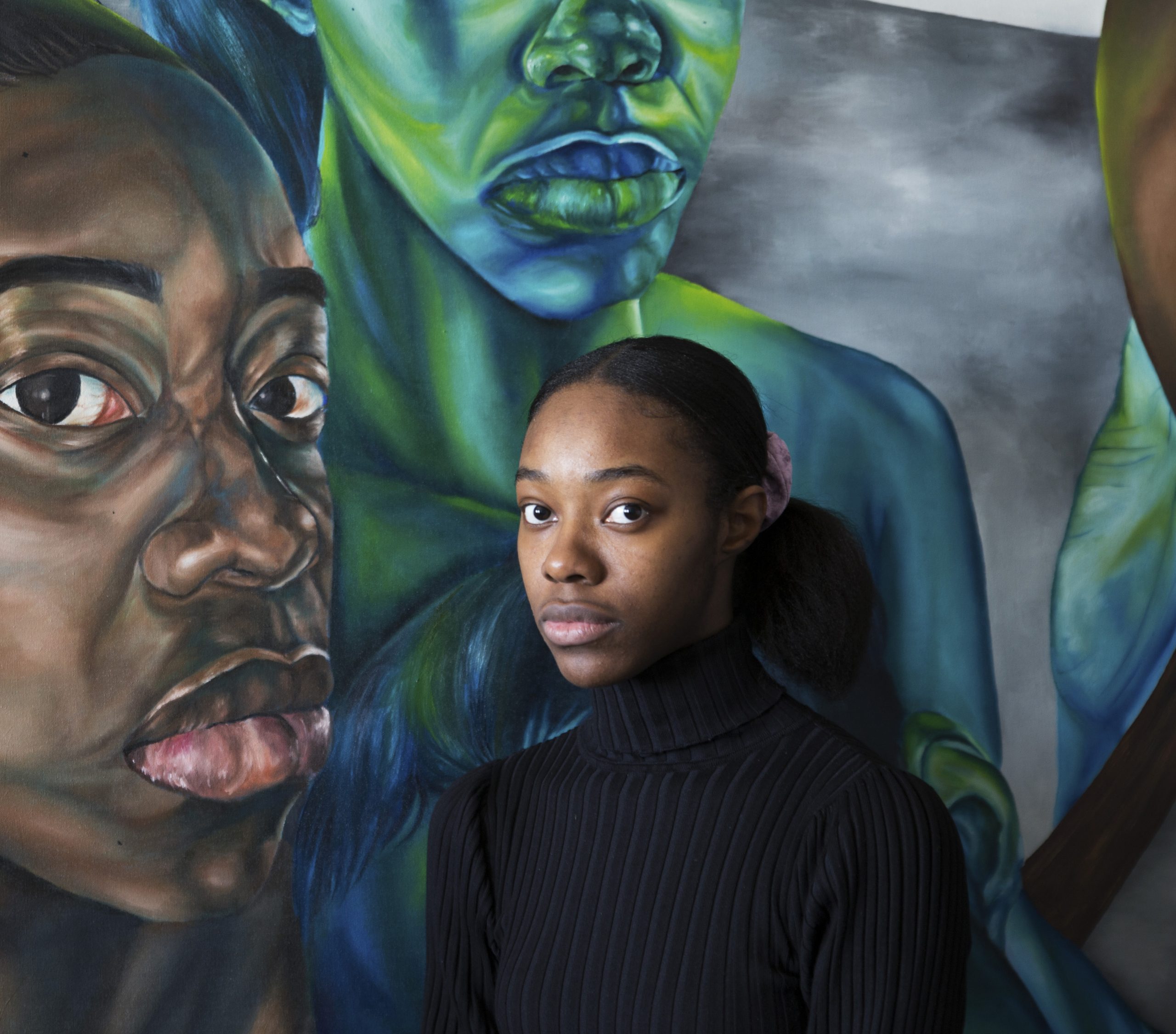Sincerely Yours, Lagos
2020
Oil, acrylics and image transfer on canvas
63.5 x 55.9 cm
Ekene Maduka is an artist who makes work that combines lived and formulated events relating to notions of displacement, self-representation and reconstructing identity. Her work often investigates the effects of cultural, social and political exposure on developing individual identity and its relationship to communal experience. In her work, she constantly investigates the fluid and diverse natures members of a society can morph into as they engage with, question and internalize happenings around them. Though the work is heavy in its subject matter, Maduka often uses satire as a tool for delivery.
In 2018, she was one of twenty recipients of the Dean Collection start-up grants and has recently shown work at 1-54 African Contemporary Art Fair with Polartics gallery. More of her work can be found via her Instagram: @ekenemaduka.
A vibrant, yellow, Keke Napep is arguably a Nigerian cliche. Looking at it closely, you might begin to hear the bustling streets that are probably one of our earliest memories of the communities we call home. So much time is spent commuting from place to place. As children, this is how we learn the route to our home and other familiar places. Memory deeply seated in the roads to nursery school, to primary school, to running errands with parents, to being given the car keys and sent on errands, to being stuck in traffic. Always – roads. These roads connect us as we share them irrespective of class differences, social hierarchy, tribe, where we are coming from or, where we are headed. In these moments spent commuting, we exist and move together – individually experiencing our own journeys yet, collectively participating in a singular experience. The Keke Napep is as quotidian as spreading clothes veiled with the freshness of laundry soap on the line after a wash. In this piece specifically, it is a metaphor for the road that leads home.
I want this piece to feel like Deja Vu to those who resonate with these roads to home. The embodiment of these sentiments is reverent in the aluminium container depicted in the painting. What can it possibly be reminiscent of? I suppose the purchase of cell phone recharge cards by a young adolescent anticipating a midnight call – very 2008, very Holla at your boy. The posters peeling off, crumbling, and exposing that very dusty silver colour of the aluminium is pivotal to forging that memory with just enough detail to make the sentiments nostalgic enough. Stylistically, my goal is to conjure up images of graffiti commonly on Primary school walls of western cartoon characters with an unrefined, lack of detail to them but, obvious enough that the artist had attempted to recreate an image of Tom and Jerry – very obviously plagiarized. In the same vein, it looks like the cover of a locally published book, maybe Eze goes to school.
The background is non-discrete and with reason – feels familiar but not to the T. It could be everywhere and anywhere, that is what home is; the internalization of elements so familiar that no matter where we encounter them, we are instantly transcended to time and place – the smell of Ogbono, Kunun, Ewedu, Ofada, Roasted corn – a home-cooked meal. Vintage salon posters, street vendors selling Fan yoghurt, mothers most frequently worn Ankara. Made in Lagos means all of these things. It is a love letter and so much more. Above all, it is a homecoming story.


